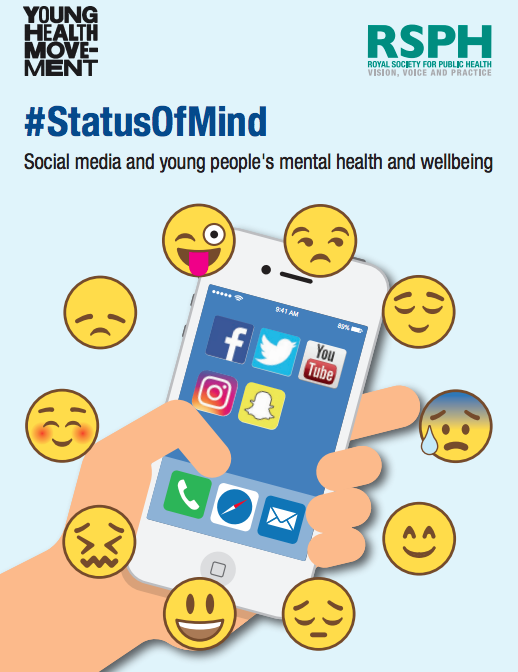Social media – that virtual world that has us glued to these small (or not so small) tech devices we call ‘phones’.
It’s hard to remember life without Facebook, Insta, Twitter and other platforms of choice. In fact, our younger generations only know life with them. That busy, fragmented life online that consumes so many of our precious minutes in the day has now become the norm.
Some of us choose to scroll while we’re waking up in the morning and before we get out of bed, others check in on the odd occasion throughout the day and some may even take a cheeky peek in the middle of the night when they can’t sleep. But one thing is pretty consistent, most of us would definitely tend to check one of our social media accounts multiple times a day.
Although social media definitely has its pros, it also does have its negative impacts. You may think that the endless scrolling is harmless, however your social media feeds can have a much bigger effect on your health than you might think.
We recently stumbled across a study by The Royal Society for Public Health in the UK that reveals some scary facts about the impacts social media can have on your mental health, specifically looking at the younger age of 16 – 24.
Check out this for some staggering results:
• Rates of anxiety and depression in young people have risen 70% in the past 25 years
• Social media use is linked with increased rates of anxiety, depression and poor sleep
• 80,000 children and young people in the UK alone suffer with severe depression
• 4 of 5 young people say social media actually makes their feelings of anxiety worse
• 9 in 10 girls say they are unhappy with their body
The report goes on to discuss the potential negative effects of social media on young people including anxiety and depression, sleep, body image, cyberbullying and FoMO (Fear of missing out). Although cyberbullying may be less in adults, all the others are still very relevant for all ages using the social media.
Have you ever realised how your social media activity is affecting your mental state?
Are you left felling energised and motivated or are you flat and disheartened? What emotions come up as you scroll, like and comment? Are they positive or negative?
Being active on social media ourselves, we can see how it’s very easy to fall down the social media rabbit hole. You jump onto your phone for one second to check something, see a notification on instagram only to find yourself scrolling moments after. How we feel after our cheeky scroll might affect how we are going to feel that day. It sounds crazy but our mood, the way we feel and perceive reality can depend on something so superficial, and in many cases not thoroughly considered.
However, there is definitely an alternative. It’s OUR feed and OUR virtual life.
So how do we take control and ensure we protect our mental health? Here’s a few of our mindful tips, which we hope can help you too:
- Value your time as precious. The time we spend on social media is time we will never get back. Be aware of how you spend your time each day and think of all the moments you may be missing out on in your real life as you scroll virtually.
- Reduce or limit your daily visits. Do we really need to be accessing more than three times a day?
- Create a feed and follow people that build you up. Choose positivity, happy and motivating accounts, groups and friends to follow.
- Don’t be scared of unfollowing. If you’re following someone that may dampen your buzz, make you feel a little negatively or worse yet, negative about yourself - unfollow. Don’t scroll on by as the same reminder will keep arriving in your feed until you do something about it.
- Mindfully scroll, don’t mindlessly scroll. If you find yourself mindlessly flicking, you’re bored and wasting time and it’s time to put the phone down or listen to a podcast instead.
- Turn the notifications off. They don’t need your attention. Interrupting your day all day long and, guess what, they’ll still be there when you log in later that day.
What mindful tips or boundaries do you set around your daily social media activity?
Reference: RSPH #statusofmind report May 2017


